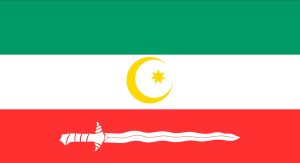The Philippines yesterday announced the opening of the two-month election campaign period in the Bangsamoro Autonomous Region in Muslim Mindanao (BARMM), including a ban on firearms that will run until after the election.
BARMM, an autonomous region in the far south of the Philippines that was created by a Bangsamoro autonomy plebiscite in 2019, will hold its first regular parliamentary elections on October 13, after two postponements.
Speaking to the press yesterday, George Erwin Garcia, the chairperson of the Commission on Elections (Comelec), announced that a gun ban would be in place until October 28, in order to prevent election-related violence in the run-up to the historic election. As Rappler explained, “Unlicensed weapons have fueled clan feuds, insurgent attacks and political killings, with police and military records showing hundreds of shooting incidents in recent years.”
Under the ban, Garcia said, the carrying of firearms and deadly weapons in all public places in the BARMM will be prohibited, even if the holder is authorized to possess or carry firearms, Minda News reported. “Individuals are also barred from employing the services of security personnel or bodyguards, and the transport and delivery of firearms, ammunition and explosives, and/or their components,” it added.
Those violating the ban will face prison terms of one to six years, the loss of voting rights, and disqualification from public office in the case of officials and politicians. Any foreigners found breaching the prohibition will be deported after serving their sentence.
The BARMM elections will mark an endpoint to the political transition that is currently underway in the Muslim-majority region, following decades of war between the Philippine government and Moro separatist rebels. In 2014, the government reached an agreement with the main rebel group, the Moro Islamic Liberation Front (MILF), providing for the establishment of an autonomous authority in the Bangsamoro region, which was set up after the 2019 plebiscite.
The election was initially set to take place in 2022, but was delayed by the COVID-19 pandemic and the absence of an electoral authority for the region. The elections were then rescheduled to May of this year, when they were to be held simultaneously with the nationwide mid-term polls.
However, the government was forced to delay the election by another five months after the Supreme Court ruled in September of last year that Sulu province would be excluded from BARMM. The court ruled that its inclusion in the BARMM was unconstitutional as most of its residents voted against joining the region in the plebiscite. This then necessitated “adjustments in the region’s parliamentary structure,” as PhilStar Global reported in February. As a result, only 73 of the 80 parliamentary seats will be up for election in October. According to Comelec, around 100 individual candidates and seven regional parliamentary political parties have registered to participate in the election.
Assuming that there are no further delays, the BARMM elections “shall be held and synchronized with the 2028 national elections and every three years thereafter.”
The parliamentary election will be an important test of the political accord, and will likely set the tone for whatever parliament emerges from the election.
In a report last year, the International Crisis Group lauded the 2014 accord between Manila and MILF as “one of the few examples of a negotiated peace anywhere in the world over the last ten years.” Nonetheless, the situation remained fragile across much of the state, where “conflict is surging, in the form of feuds among clans and political rivals, but also rebel infighting, particularly in central Mindanao.” It added, “Although confined to pockets of the island, the recurrent skirmishes cast a shadow over the delicate transition.”

































